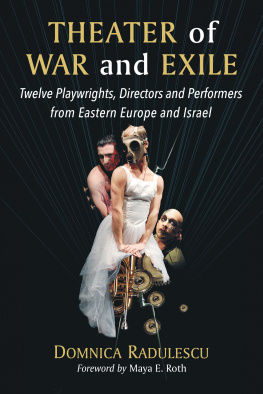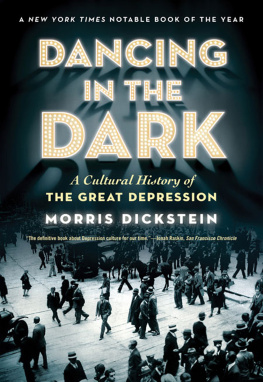D ream in a S uitcase
The Story of an Immigrant Life
Domnica Radulescu
Austin Macauley Publishers
2022-01-04
Dream in a Suitcase
About the Author
Domnica Radulescu is an American writer of Romanian origin living in the United States, where she arrived in 1983 as a political refugee. She settled in Chicago, where she obtained a Ph.D. in Romance Languages from the University of Chicago.
She is the author of three critically acclaimed novels, Train to Trieste, Black Sea Twilight, and Country of Red Azaleas, and of award-winning plays. Train to Trieste has been published in thirteen languages and is the winner of the 2009 Library of Virginia Best Fiction Award. Radulescu received the 2011 Outstanding Faculty Award from the State Council of Higher Education for Virginia and is twice a Fulbright scholar. She is a distinguished service professor of comparative literature in Virginia.
Dedication
For Zoila and Mireya Valdivieso, without whom, my dreams might have never made it out of their suitcase.
For Henry, who supports all my dreams.
To the memory of my father, who taught me to pursue all my dreams.
Mottos
Strangely, or rather quite logically, it is at moments like this when I find myself between two languages, that I believe I can see and feel more intensely than ever. Andrei Makine
Exile is the un-healable rift between a human being and a native place, between the self and its true home. Its essential sadness can never be surmounted. Edward Said
Copyright Information
Domnica Radulescu 2022
All rights reserved. No part of this publication may be reproduced, distributed, or transmitted in any form or by any means, including photocopying, recording, or other electronic or mechanical methods, without the prior written permission of the publisher, except in the case of brief quotations embodied in critical reviews and certain other non-commercial uses permitted by copyright law. For permission requests, write to the publisher.
Any person who commits any unauthorized act in relation to this publication may be liable to criminal prosecution and civil claims for damages.
All of the events in this memoir are true to the best of authors memory. The views expressed in this memoir are solely those of the author.
Ordering Information
Quantity sales: Special discounts are available on quantity purchases by corporations, associations, and others. For details, contact the publisher at the address below.
Publishers Cataloging-in-Publication data
Radulescu, Domnica
Dream in a Suitcase
ISBN 9781649795397 (Paperback)
ISBN 9781649795403 (Hardback)
ISBN 9781649795410 (ePub e-book)
Library of Congress Control Number: 2021947230
www.austinmacauley.com/us
First Published 2022
Austin Macauley Publishers LLC
40 Wall Street, 33rd Floor, Suite 3302
New York, NY 10005
USA
mail-usa@austinmacauley.com
+1 (646) 5125767
Acknowledgments
I wish to thank my parents, Stella and Gheorghe, for the immeasurable love, encouragement, and joy of life they unfalteringly gifted me throughout my lifes journey. I want to thank my sons, Alexander and Nicholas, for the beauty, light, and laughter they have brought into my life. I thank Paul Friedrich for his many valuable lessons and insights into life and art and his unshaken belief in my work.
I owe a significant debt of gratitude to Washington and Lee University, for the Lenfest sabbatical leave support and summer grants that have afforded me the time to complete this book.
Profound gratitude is extended to Roxana Cazan, for her impeccable editorial work on my manuscript and her many valuable insights.
I am deeply grateful to my partner, Henry, for always standing by me in happy and difficult times alike and for the laughter and joy he brings every day into my life.
Praise for Dream in a Suitcase
A smart, insightful story of escape, survival, and emotional triumph. From Radulescus girlhood years during the suffocating oppression of the Ceausescu dictatorship, through her crazy student days in Chicago to her current life in a small, sleepy, and sometime stultifying southern town in the US, Radulescu found ways to maintain her joie de vivrethrough whirlwinds of lovers, travel adventures, and especially artistic creation. Dream in a Suitcase is sometimes excruciatingly dark, sometimes rollickingly funny, but always entertaining and provocative. Brbara Mujica, award-winning author of Frida, Sister Teresa, and I Am Venus.
As in a fairy tale, the dream locked in the small suitcase that the young Romanian woman takes away from a country where she cannot live freely, will take the reader on a zigzag adventure on the roller coaster back and forth between country of birth and country of adoption, in a frenzied odyssey where Ulysses is a woman in search of an Ithaca who regularly offers herself and hides herself. An extraordinary story of our time, surfing the geography of exile to make it the place where one is at home everywhere and told in the feminine, in a language that is translatable in all the others. Michle Sarde, award winning author of Colette, Free and Fettered, History of Eurydice during the Ascent, and Returning from Silence, finalist for the Goncourt Prize for literature.
The Escape
Bucharest, the spring of 1983. The lines for food are interminable, the secret police omnipresent, the potholes in the sidewalks as deep as graves. Only the forsythias break the grayness with splashes of dazzling yellows. At street corners, the Gypsies sell posies of ghiocei, snowdrops, the first flowers that bloom, creeping out of the snow, white on white, bell-shaped beauties that grow in the wooded regions around the capital city.
During the day, I attend my courses in English Literature at the University of Bucharest. I hop on crowded slow buses that seem to have forgotten their destination, and I move through the tired Bucharest masses of people grinding my teeth and staring at the pavement covered in slush from the recent snow.
At night, I go to the theater: The Master and Margarita, Iphigenia, The Tempest, Caligula, or just a good old Romanian comedy of mistaken identities and purloined letters. After the theater, I go to another theater. I go to the theater held in the attic of the Headquarters of the Communist Youth. This theater is called the Attic.
On the first floor of the headquarters, the halls are studded with large portraits of the Communist Gods: Marx, Engels, Lenin, and the Romanian Dictator with his touched-up lips that make him look like a dreamy pig. I rush up the stairs all the way to the top of the building and open the door to the Attic. There arent any portraits of any of the Gods here.
The brooding theater director and my theater comrades are practicing their different parts in the hallway or inside. I realize that once I enter this space, I start breathing at a steady pace. I change into my practice clothes, which are also our costumes for everything.
At first, I did not like the gray and black costumes, the gray canvas stools that serve as a set for every show depending on how we set them up or stack them up or line them up. The modern theory of theater has reached us too despite our ferocious dictatorship. I thought,









